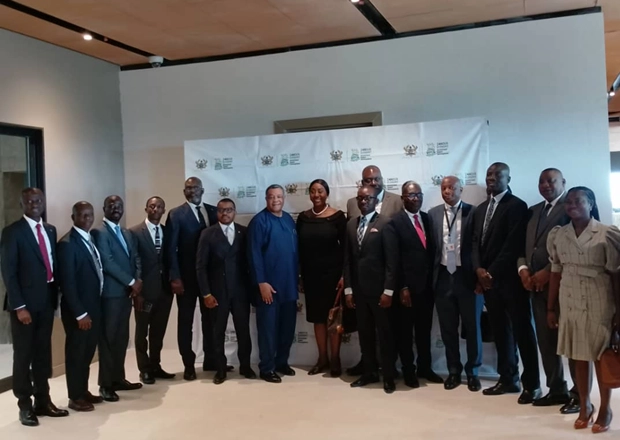Ghana is embarking on an ambitious initiative, the 24-Hour Economy, envisioned as a catalyst for economic growth and job creation. This program aims to revitalize key sectors such as agriculture, manufacturing, logistics, and digital services, fostering continuous operations and maximizing productivity. Recognizing the crucial role of finance in achieving this vision, Presidential Advisor Goosie Tannoh has called upon local banks to partner with the government in providing tailored financial solutions, especially for Small and Medium Enterprises (SMEs). Tannoh emphasized that access to credit remains a significant hurdle, hindering the progress of SMEs, particularly startups and young entrepreneurs who struggle to meet traditional collateral requirements. He advocated for innovative financing models that move beyond demanding physical assets as collateral, recognizing that such rigid requirements stifle innovation and private sector growth. The 24-Hour Economy Secretariat is actively exploring alternative collateral options to create a more accessible financial environment for businesses.
The core challenge lies in the prevailing lending practices within Ghana’s banking sector. Traditional lending models often rely heavily on physical assets as collateral, a requirement that many SMEs, particularly startups, cannot meet. This dependence on traditional collateral creates a barrier to entry for many aspiring entrepreneurs, limiting their access to the necessary capital for growth and expansion. Tannoh argues that this model is unsustainable and hampers innovation and private sector development. He stresses the need for a paradigm shift in lending practices, urging banks to embrace more flexible and inclusive approaches to collateral requirements. The success of the 24-Hour Economy, he contends, hinges on creating a financial ecosystem where access to credit is possible without imposing unrealistic collateral obligations.
Tannoh emphasizes the importance of collaboration between public and private institutions, with banks playing a pivotal role in unlocking the potential of Ghana’s productive sectors. He acknowledges the efforts already made by some banks in supporting the 24-Hour Economy initiative but highlights the need for a more concerted and strategic approach. He calls for a national financing strategy aligned with the goals of the 24-Hour Economy, bringing together banks, development finance institutions, and regulators to support SMEs across various value chains. This collaborative approach, he believes, will facilitate a more streamlined and efficient flow of capital to businesses operating within the 24-Hour Economy framework.
The Bank of Ghana, the nation’s central bank, has expressed its commitment to supporting the 24-Hour Economy by fostering a conducive macroeconomic environment for stable and inclusive financial growth. Ismail Adam, Director of Banking Supervision, speaking on behalf of the Governor, Dr. Johnson Asiama, stressed the importance of maintaining public confidence in the banking system through robust supervision and enforcement of regulations. He emphasized the Bank of Ghana’s readiness to utilize its monetary policy tools to support the initiative. By maintaining stable prices and lowering inflation, interest rates can be adjusted downwards, making credit more affordable for businesses. The central bank also recognizes the critical role of innovation in payment systems and financial technologies in facilitating 24-hour operations and enhancing access to financial services.
A key aspect of the Bank of Ghana’s strategy involves continuous monitoring and supervision of financial institutions to ensure their soundness, compliance with international best practices, and adherence to strong corporate governance and risk management systems. This proactive approach aims to maintain the stability and resilience of the banking sector, which is crucial for the success of the 24-Hour Economy. The Bank of Ghana recognizes that a robust and reliable financial system is essential for fostering investor confidence and attracting both domestic and foreign investment. This, in turn, will contribute to the overall growth and sustainability of the 24-Hour Economy.
The Banking Sector Roundtable, held in Accra, served as a platform for key stakeholders to discuss and strategize on financing the 24-Hour Economy. The meeting brought together representatives from the Association of Banks, heads of financial institutions, non-bank financial institutions, and officials from various government agencies. The discussions focused on the need for a comprehensive national financing strategy that effectively supports SMEs across diverse value chains, from agribusiness and agro-processing to manufacturing, logistics, and digital commerce. The 24-Hour Economy Secretariat reiterated its commitment to engaging with all stakeholders to ensure that the program translates into tangible economic growth, job creation, and opportunities for Ghanaians.


